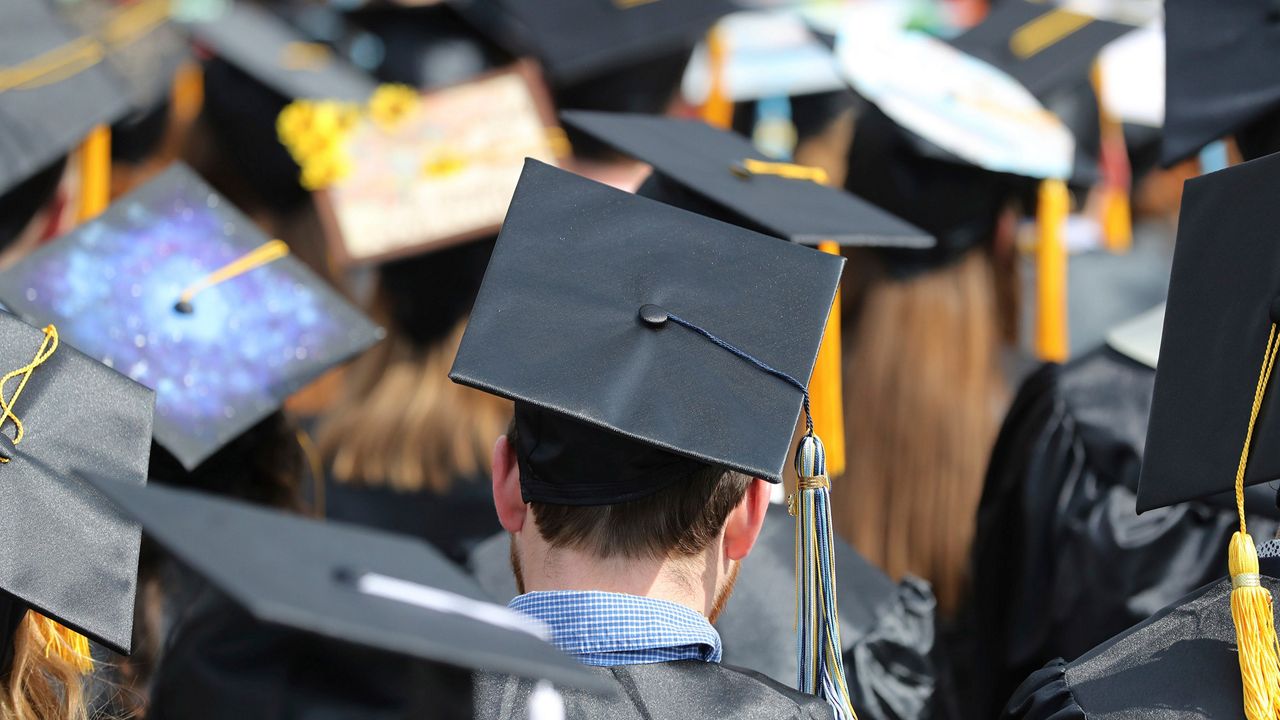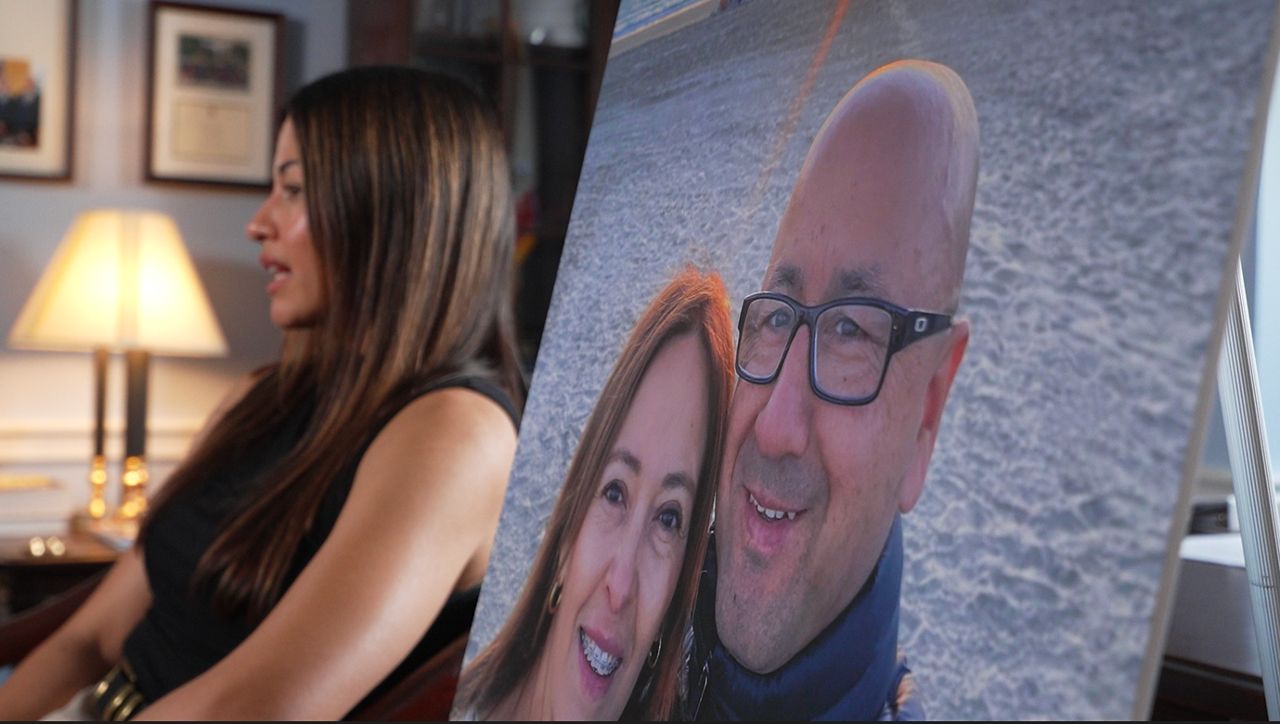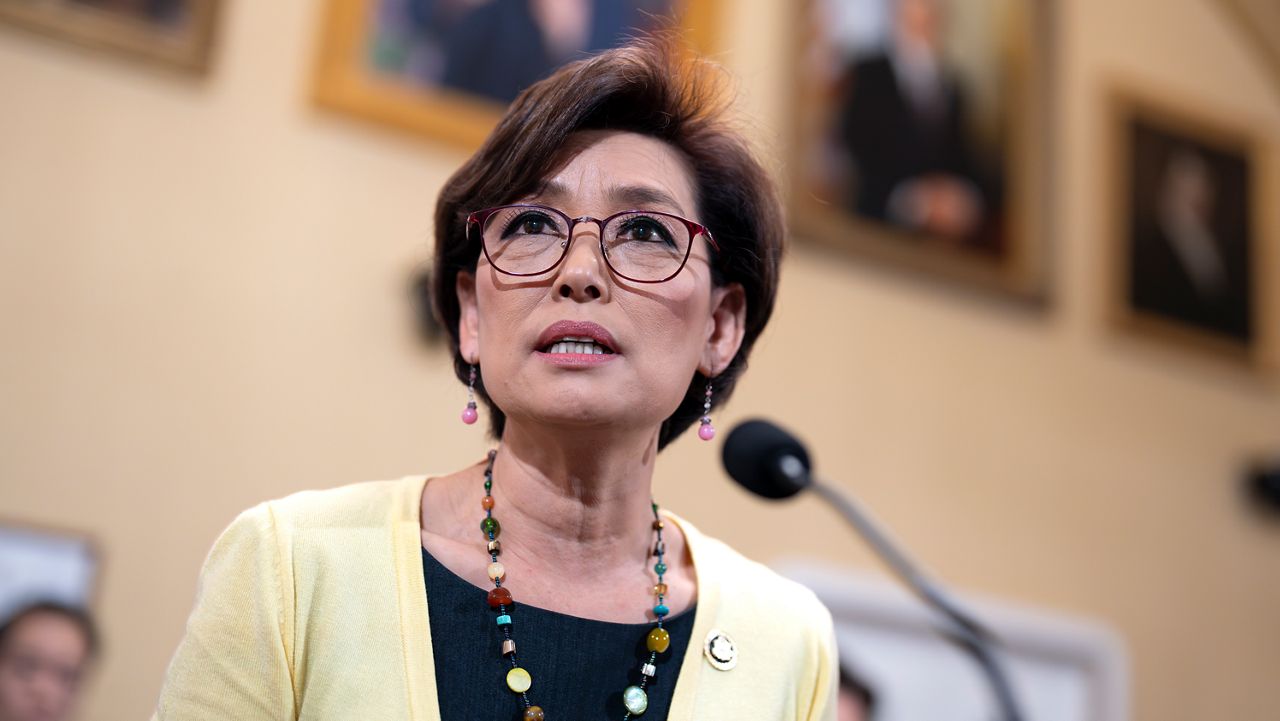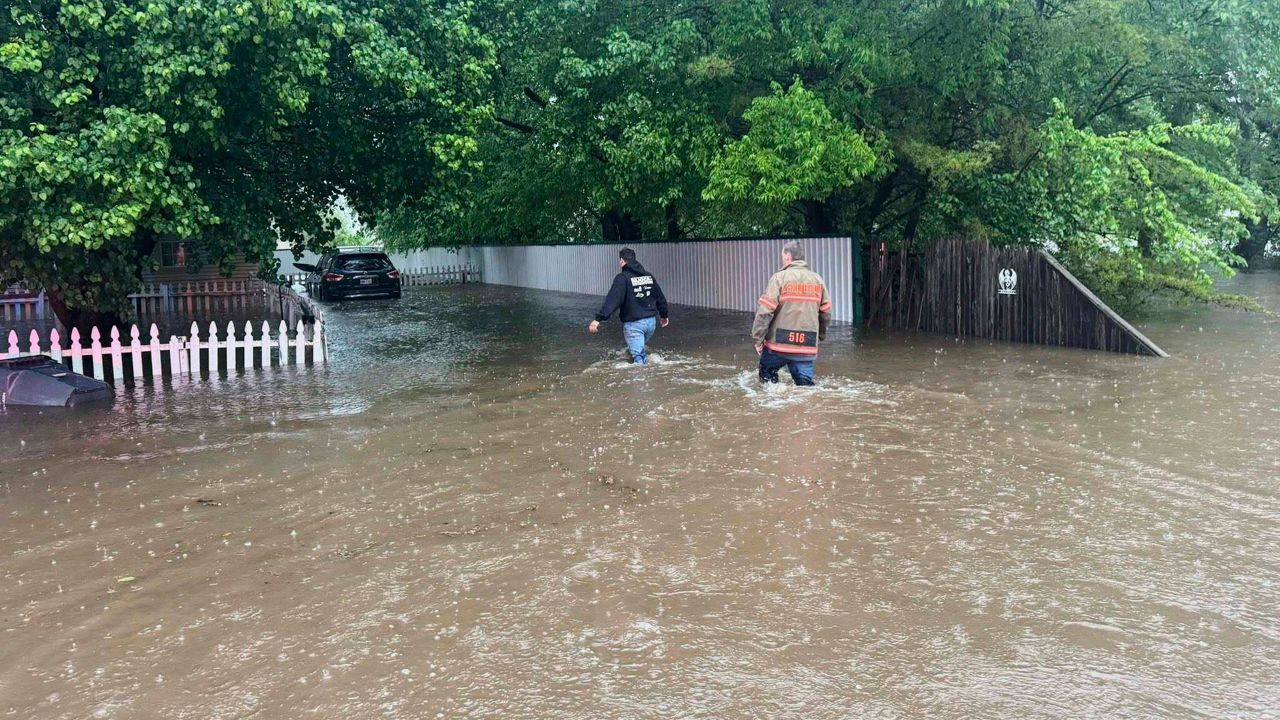The college football season is in full swing, but what’s happening off the field in college sports is also getting a lot of attention.
Student-athletes can now make thousands, and in some cases millions of dollars, off of their name, image and likeness (NIL).
The huge amounts of money involved, the lack of regulations, and the potential impact on college sports are fueling demands for Congress to step in.
Jacobi Sebock is hoping to land his first NIL deal.
The student-athlete at Queens University in Charlotte, North Carolina, is preparing for his season on the school’s basketball team. His road to this Division I program was untraditional to say the least.
“Coaches, they didn’t really play me because they didn’t want me to overheat,” Sebock said.
The 20-year-old has a rare condition called Hypohidrotic Ectodermal Dysplasia, which means he doesn't have sweat glands. He grew up wearing cooling vests before figuring out how to control his breathing in games to keep his body temperature down.
Sebock's story is inspiring -- and one he hopes will land him an advertising deal, giving him a "great opportunity" to show "what I’ve been through … where I came from and how I made it to my goal in life."
In 2021, the NCAA said college athletes could finally profit from their name, image and likeness. It sparked a gold rush.
Collectively, college athletes are projected to earn nearly $1.2 billion in NIL deals this year, with Division I athletes averaging over $4,000 a year, according to Opendorse.
Some Division I athletes have deals worth millions of dollars.
“I’m not sure we saw this playing out the way it’s been thus far and just the rapid pace of growth is what we probably didn’t expect,” said Tony Weaver, a professor of sports management at Elon University.
While this new landscape is financially good for college athletes, the lack of rules governing NIL deals has turning college athletics into a kind of wild, wild west.
“There has been virtually no regulation or limited regulation,” Weaver said.
Alumni and supporters of various schools have formed collectives to raise money to entice top players to enroll in specific athletic programs.
Coupled with more relaxed transfer rules that started in 2021, a bidding war has erupted for star athletes.
Weaver said a patchwork of state laws has taken shape creating an NIL arms race.
“States that were allowing more freedom and were allowing student athletes to benefit quicker, right away, that was a recruiting advantage. And so, you noticed other schools in other states, they responded almost immediately.
“You end up having a situation … that I think has the potential to undermine competitiveness in college sports,” said Sen. Ted Cruz, R-Texas.
“We are in the process of discussing it, sitting down and saying ‘OK, where can we find common ground,’” Cruz said. “I’m hopeful we will get movement in the next year.”
It’s why there is a call for Congress to set nationwide NIL standards. Legislation proposed by Cruz would set uniform contract provisions so NIL agreements have safeguards to protect the student-athlete.
The bill is endorsed by the NCAA but could face pushback because it gives the NCAA, rather than a third-party, the power to regulate NIL.
It's one of numerous bills focused on NIL in Congress.
A bipartisan bill in the Senate would create a College Athletes Bill of Rights to allow athletes to benefit from their NIL with limited restrictions.
The bill would also create a Commission on College Athletics to ensure athletes are aware of their rights and that those rights are upheld and would allow athletes to draw from a Medical Trust Fund to cover out-of-pocket medical expenses to treat a sport-related injury.
Another bipartisan bill introduced by Democratic Sen. Joe Manchin of West Virginia and Republican Sen. Tommy Tuberville of Alabama would disclose how much money players make from NIL deals, regulate collectives and put restrictions on when players can transfer.
In a divided Congress, lawmakers will have to find consensus.
“We are in the process of discussing it, sitting down and saying, ‘OK, where can we find common ground,’” Cruz said. “I’m hopeful we will get movement in the next year.”









